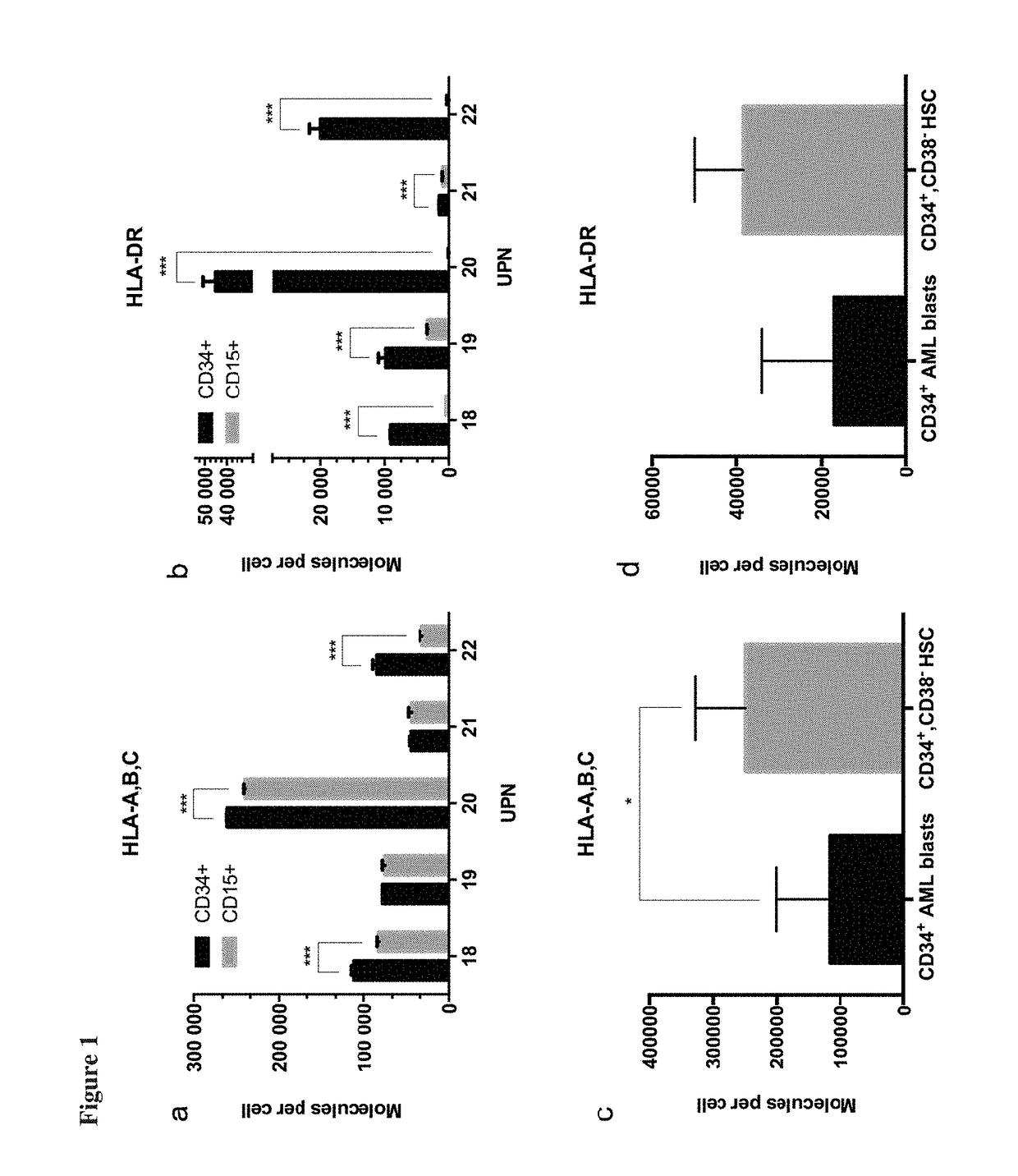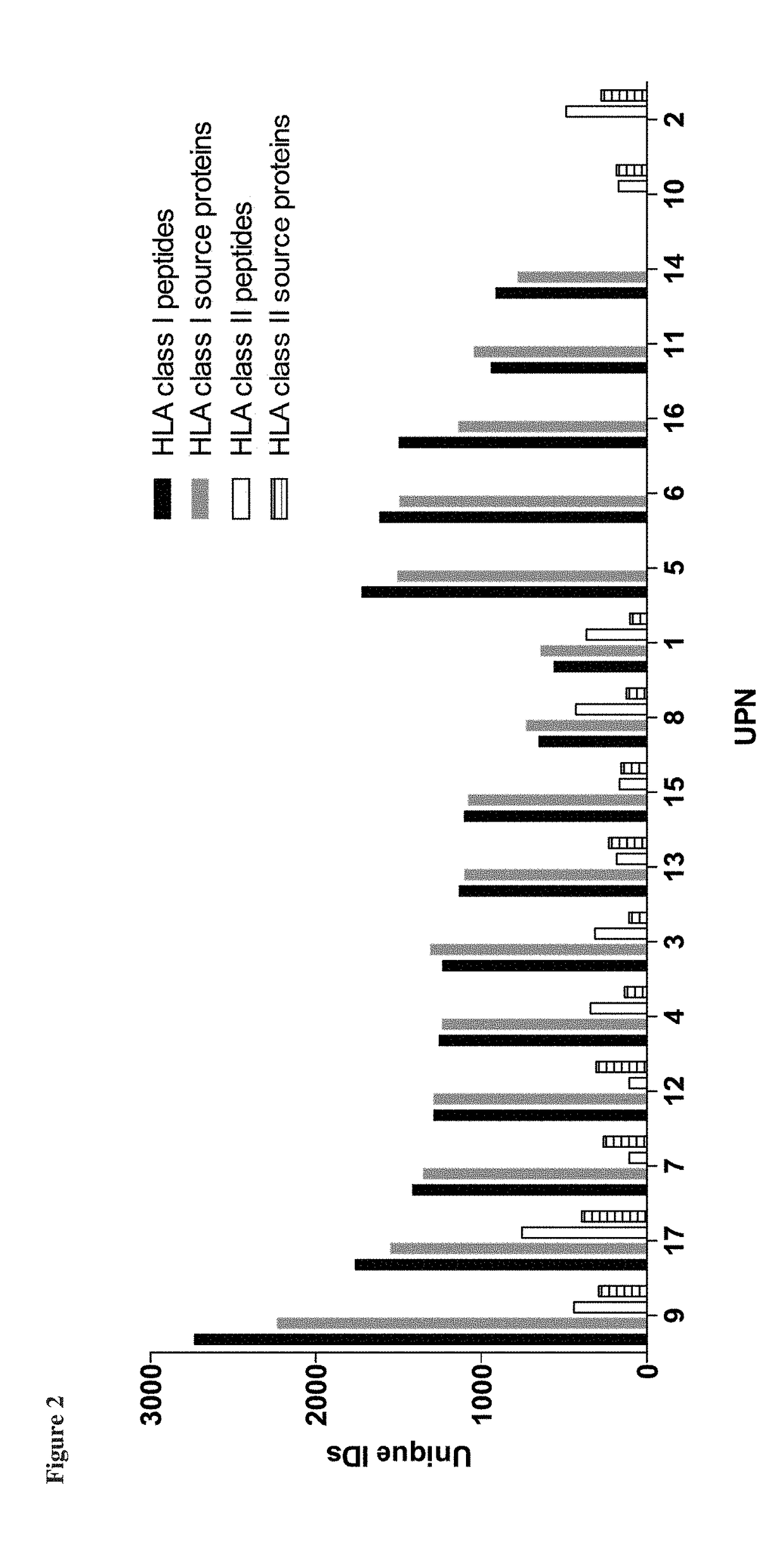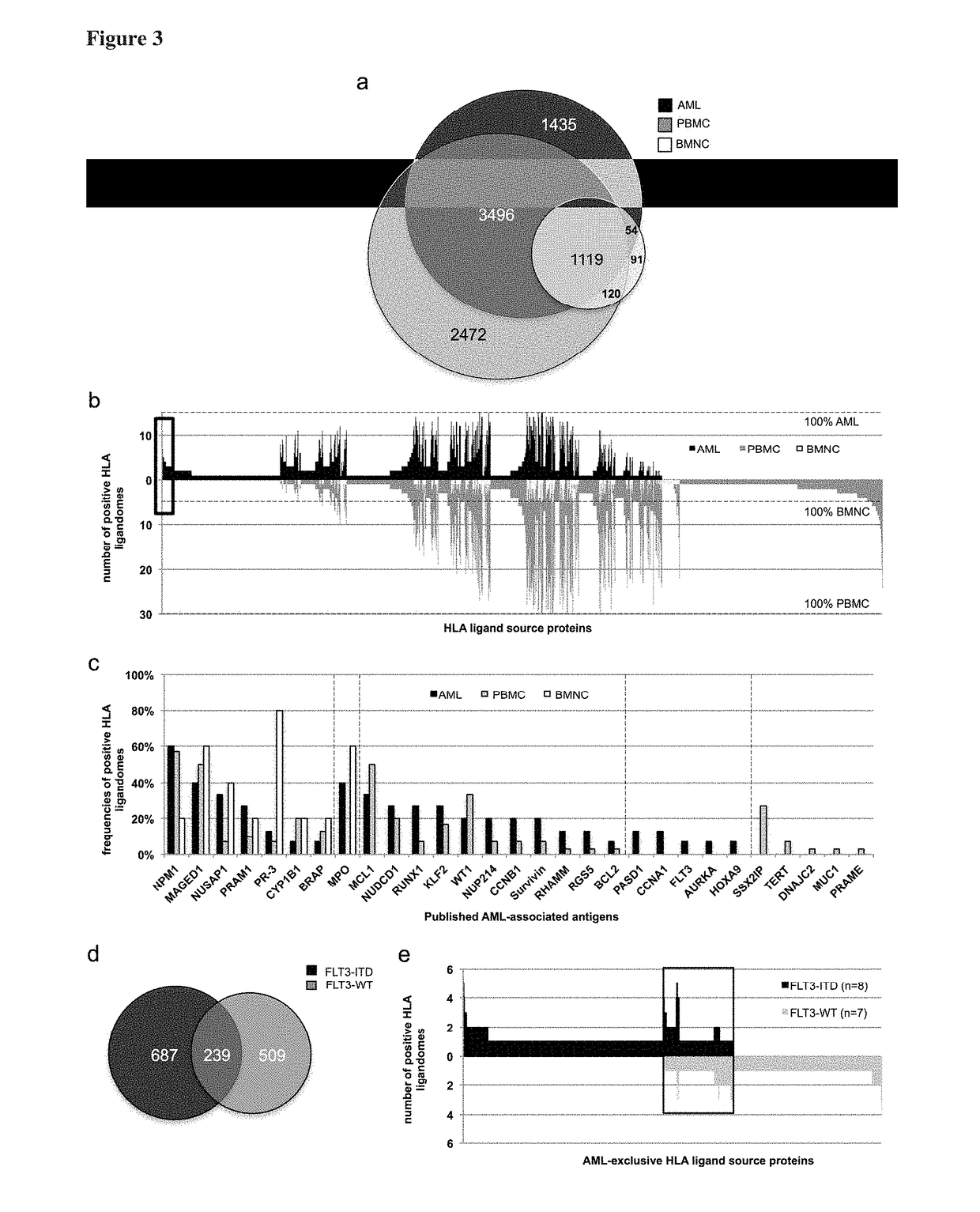Novel immunotherapy against several tumors of the blood, such as acute myeloid leukemia (AML)
a technology of acute myeloid leukemia and immunotherapy, which is applied in the field of peptides, nucleic acids and cells, can solve the problems of increased infection risk, shortening the treatment time, and easy bruising and bleeding, and achieves severe side effects and improves the well-being of patients
- Summary
- Abstract
- Description
- Claims
- Application Information
AI Technical Summary
Benefits of technology
Problems solved by technology
Method used
Image
Examples
example 1
[0378]Identification and quantitation of tumor associated peptides presented on the surface of the cell
Tissue Samples
[0379]Patients' tumor samples were provided by University of Tübingen, Tübingen, Germany Written informed consents of all patients had been given. The samples were shock-frozen in liquid nitrogen immediately after surgery and stored until isolation of TUMAPs at −80° C. For ligandome analysis, PBMC from AML patients at time of diagnosis or at relapse prior to therapy (>80% AML blast count in blood), as well as PBMC and BMNC of healthy donors were isolated by density gradient centrifugation
Isolation of HLA Peptides from Tissue Samples
[0380]HLA class I and II molecules were isolated employing standard immunoaffinity purification as described previously. In brief, snap-frozen cell pellets were lysed in 10 mM CHAPS / PBS (AppliChem, St. Louis, Mo., USA / Gibco, Carlsbad, Calif., USA) containing 1× protease inhibitor (Complete, Roche, Basel, Switzerland). HLA molecules were sin...
example 2
Expression Profiling of Genes Encoding the Peptides of the Invention
[0396]Not all peptides identified AML as being presented on the surface of tumor cells by MHC molecules are suitable for immunotherapy, because the majority of these peptides are derived from normal cellular proteins expressed by many cell types. Only few of these peptides are tumor-associated and likely able to induce T cells with a high specificity of recognition for the tumor from which they were derived. In order to identify such peptides and minimize the risk for autoimmunity induced by vaccination the inventors focused on those peptides that are derived from proteins that are over-expressed on tumor cells compared to the majority of normal tissues.
[0397]The ideal peptide will be derived from a protein that is unique to the tumor and not present in any other tissue. To identify peptides that are derived from genes with an expression profile similar to the ideal one the identified peptides were assigned to the p...
example 3
In Vitro Immunogenicity for AML MHC Class I Presented Peptides
[0403]In order to obtain information regarding the immunogenicity of the TUMAPs of the present invention, the inventors performed investigations using an in vitro T-cell priming assay based on repeated stimulations of CD8+ T cells with artificial antigen presenting cells (aAPCs) loaded with peptide / MHC complexes and anti-CD28 antibody. This way the inventors could show immunogenicity for 9 HLA-A*0201 restricted TUMAPs of the invention so far, demonstrating that these peptides are T-cell epitopes against which CD8+ precursor T cells exist in humans.
In Vitro Priming of CD8+ T Cells
[0404]In order to perform in vitro stimulations by artificial antigen presenting cells loaded with peptide-MHC complex (pMHC) and anti-CD28 antibody, the inventors first isolated CD8+ T cells from fresh HLA-A*02 leukapheresis products via positive selection using CD8 microbeads (Miltenyi Biotec, Bergisch-Gladbach, Germany) of healthy donors obtain...
PUM
 Login to View More
Login to View More Abstract
Description
Claims
Application Information
 Login to View More
Login to View More - R&D
- Intellectual Property
- Life Sciences
- Materials
- Tech Scout
- Unparalleled Data Quality
- Higher Quality Content
- 60% Fewer Hallucinations
Browse by: Latest US Patents, China's latest patents, Technical Efficacy Thesaurus, Application Domain, Technology Topic, Popular Technical Reports.
© 2025 PatSnap. All rights reserved.Legal|Privacy policy|Modern Slavery Act Transparency Statement|Sitemap|About US| Contact US: help@patsnap.com



